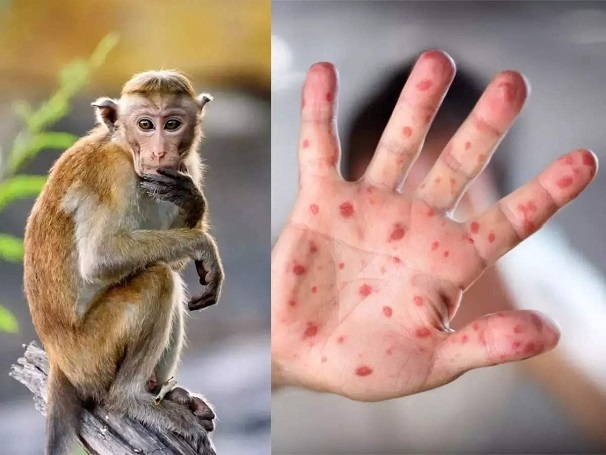AIIMS, Nagpurdesignated as testinglab in Maharashtra
| Date :28-Aug-2024 |

Monkey Pox
Staff Reporter :
INDIAN Council of Medical
Research (ICMR) and
Department of Health Research
(DHR) have identified All India
Institute of Medical Sciences
(AIIMS) at Nagpur as the
Regional Testing Center for
Monkey Pox (Mpox), which is
among the 35 laboratories designated for testing suspected
cases of Mpox all over the country. The laboratory at Nagpur
will be the first and only one
in Maharashtra.
Dr Meena Mishra, Principal
Investigator, Viral Research
Diagnosis Laboratory (VRDL)
and Professor and Head,
Department of Microbiology,
AIIMS, Nagpur has informed
that the laboratory is equipped
with the necessary kits and
reagents for Mpox testing, provided by Indian Council of
Medical Research (ICMR)-
National Institute of
Virology(NIV ), Pune and is currently accepting samples suspected of Mpox.
Dr Meena Mishra explained,
“This state-of-the-art laboratory since its inception, has
been instrumental in testing
more than 5 lakh COVID-19
samples along with other viral
diseases like influenza, hepatitis-B, hepatitis-C, Human Papilloma Virus, dengue,
chikungunya etc. AIIMS will
accept and test suspected
cases of Mpox in entire
Vidarbha and adjoining areas.
WHO has declared
Monkeypox a Public Health
Emergency of International
Concern (PHEIC) on August
14, 2024 due to the emergence of the new strain of the
virus: Clade Ib.
The new strain
has become a matter of concern because only in this year,
among 15,600 reported cases, there have been a staggering 537 documented
deaths. It has also spread to
several African countries who
have previously not reported the disease. In India, till
date a total of 30 cases of
Monkeypox have been
detected with a death occurring in Kerala in March 2024.
Monkey pox is to be suspected in a person if he/she
develops fever, headache,
muscle pain, back pain, weakness and/or fatigue along
with developing skin rash that
starts with the tongue and
mouth before spreading to
other parts of the body, especially in persons who have
travelled to endemic countries for Mpox or have come
in contact with a suspected
or confirmed case of Mpox.
It is also accompanied with
swollen lymph nodes.
High
risk groups have been identified as those who are
immunocompromised, children, elderly, pregnant
females and people with multiple sexual partners.
Prof Dr Prashant Joshi,
Executive Director, AIIMS
elaborated, “The characteristic rash associated with
Mpox can also be confused
with other diseases that are
more commonly encountered in clinical practice like
chicken pox, syphilis,
Varicella zoster, measles, scabies, and hand, foot and
mouth disease. Therefore, he
has emphasised that if the
above mentioned symptoms
are seen along with travel history to endemic areas or coming into contact with a suspected or confirmed case of
Mpox, it is advised to take
medical help, added Dr Joshi.
Prof Dr Prashant Joshi
informed that there is no need
to panic but nonetheless, precautions need to be taken to
prevent the disease from
spreading, to identify the vulnerable groups and to determine the spreading strain
type in the population.